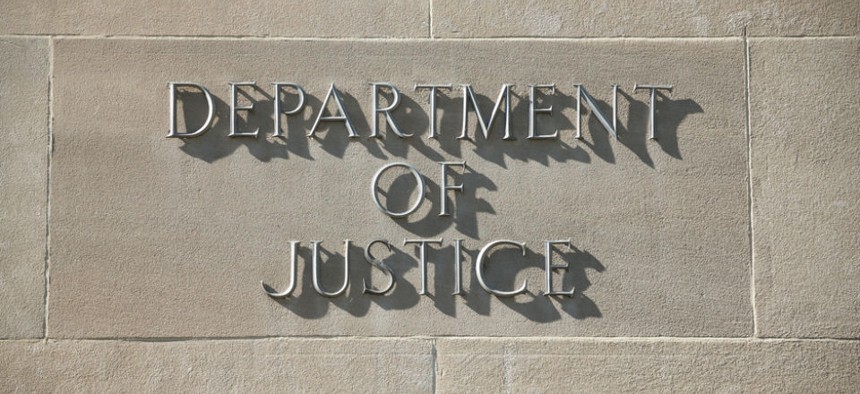
blvdone/Shutterstock.com
Justice Department Exec Pulled Strings to Get Son Hired, IG Finds
The watchdog found ethics violations in the Interpol Washington office.
A federal executive in the Washington office of Interpol broke ethics rules in seeking internships and jobs for his son and the son’s friends, according to a review released Wednesday by the Justice Department inspector general.
Warren Lewis was executive officer in the stateside office of the international crime-fighting body headquartered in Lyons, France, when in the spring and summer of 2012, he sought to “obtain positions for his son and for three persons associated with members of his family,” said the report, which also criticizes “the efforts of Lewis and other Interpol Washington managers to obtain internships for people they knew.” The Washington office of the International Criminal Police Organization is part of the Justice Department but co-managed by Homeland Security.
The appointment of Lewis’ son to an internship and later to a contract position as a criminal analyst constituted favoritism that violated the Standards of Ethical Conduct for Employees in the Executive Branch dealing with conflict of interest and misuse of office, according to the investigation, which was sparked by an employee complaint.
Lewis, along with former Director Timothy Williams and former Chief of Staff Blair Deem, “used their leadership positions in Interpol Washington to benefit their friends and acquaintances by placing them or their family members in unpaid intern positions,” the report said.
Williams has since retired, and declined a second interview requested by investigators, who relied on email to establish their case. Because Lewis and Deem remain as federal employees, the IG has referred its findings on them to the Office of the Deputy Attorney General for its review and disciplinary action.
Williams was replaced as director in October 2012 by Shawn Bray.
According to a timeline of the case, the ethics breaches began in spring 2011, when, according to the Interpol Washington Intern Coordinator, she had finished processing intern applications when “Lewis handed her the resume of his son Peter, a college student, and instructed her to bring him in as an intern for the summer. Lewis told us that he did not have anything to do with Peter getting an internship,” IG staff said.
But after the internship, the son completed college in May 2012 and Lewis arranged for his son’s name to be included on a list of people recommended for hiring by contractor CGI Federal.
“Lewis repeatedly contacted the DOJ’s Justice Management Division to facilitate the selection of former interns, a group that included his son,” the report said. “Lewis also contacted the contractor’s vice president about a job for his son,” the result being that the vice president instructed his subordinates to “provide extra attention to his processing for obvious reasons,” and to “earmark a spot for him.”
Lewis then contacted an assistant director on the Justice Department’s Security and Emergency Planning Staff to expedite his son’s security clearance, which was needed for the contractor position, giving further advantage to his son over the many other applicants. The son’s appointment was temporarily rescinded, but he was finally hired in August 2012 on condition that his father not supervise him.
Lewis provided similar help to three CGI applicants who were friends or acquaintances of his son whose professional qualifications were not known to Lewis, the report said.
“Williams, Deem, and Lewis were in leadership positions at Interpol Washington,” the IG concluded, “and as such bore primary responsibility to ensure that the intern program was administered fairly and without favoritism . . . Internship programs are established for the benefit of the government, not as a fringe benefit for senior officials to dole out to their friends and acquaintances.”
(Image via blvdone/Shutterstock.com)
NEXT STORY: How Not to Ask for a Recommendation Letter







